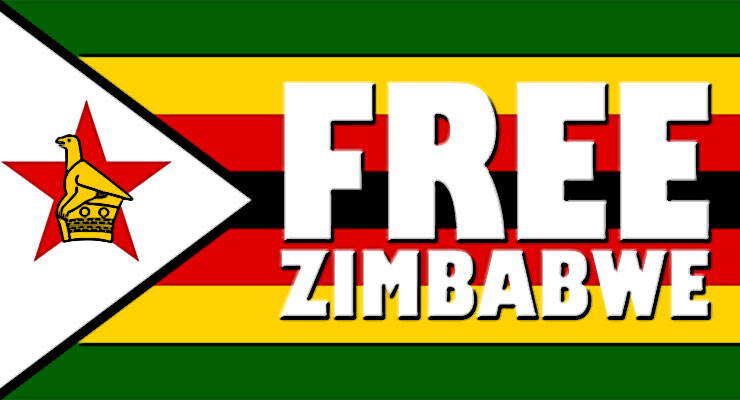
Is it time for a Zimbabwe national dialogue? For some time now, Zimbabwe has seen a worsening economic crisis in the shape of acute shortages in water, fuel, electricity. Protests have been organised by the opposition and civil society in condemnation of the way the regime has been running things. Past protests have often resulted in deaths and destruction of property. The latest protests organized in January 2019 against rising fuel prices made away with 12 lives, looting of shops and destruction. While protests remain a democratic right, the tensions building up to the planned protest of August 16, 2019, make a Zimbabwe national dialogue a less costly avenue to express grievances. But this would be conditional upon the government being open to such dialogue.
Language of carrots which often precedes or translates to sticks
At a ceremony to mark the 39th National Heroes Acres Day in Zimbabwe, President Emmerson Mnangagwa called for calm, peace and nonviolence in the Southern African nation. This comes as the opposition Movement for Democratic Change (MDC) plans protests in the capital, Harare, on August 16, against economic hardship. Mnangagwa said that Zimbabwe’s heroes and heroines at the National Heroes Acres, “and others at marked and unmarked graves, …in Zimbabwe, Mozambique, Zambia, Botswana… Angola, gave their lives to uphold this peace,… unity, freedom, justice and independence… [, so] let us honor them by dedicating ourselves to peace [as well]”.
The Mnangagwa government has acknowledged that there is indeed economic hardship in the country and has announced several measures, purportedly aimed at resolving the problem. Mnangagwa said “going forward, my government will continue to concentrate on increasing production efficiencies across all sectors of the economy.” Mnangagwa assured the nation that no one will die of hunger this year following the impact of cyclone Idai and drought that left a third of the country’s population in need of food aid.” However, Mnangagwa’s regime has also warned Zimbabweans not to disturb or misuse the rights of others as the government respects human rights, a reference to the opposition’s calls for protests.
De facto assignment of balloon popping to regime cronies, a strategy to ensure President’s deniability in sticks policy?
According to Secretary General of the Zimbabwe National Liberation War Veterans Association Victor Matemadanda, the MDC is responsible for violence in the country and can also be held accountable for disrespecting heroes and war veterans in the country by not joining them to celebrate their day. Teaming up together with Matemadanda, Lewis Matutu, secretary of the ruling Zimababwe African National Union – Patriotic Front (Zanu-PF) Youth League said “we saw what they did in the last demonstration – looting shops and stealing people’s things, breaking things, so we can’t allow them to do that again.” Matutu added that they are not concerned that the demonstrations are sanctioned by the police.
Opposition’s resolve to have its constitutional rights respected
Standing against Matemadanda and Matutu, MDC spokesperson Daniel Molokele bashed the threats to the demonstration and claims that no one can stop the party from going on with what has been planned. “As the MDC party, we are following the Constitution – Section 59 – which says that every Zimbabwean citizen has a right to demonstrate and hold peaceful petitions. That is what we will do on Friday,” Molokele said. He also added the MDC was “going ahead with…plans to hold a demonstration in Harare, on Friday.” Finally, Molokele went ahead to state that the Zanu-PF was free to hold its own demonstrations under the same constitutional protection.
Way forward
Mnangagwa has often preached peace and calm but this has often not translated into responsible and/or professional behaviour of the security sector when it comes to protests. Popping balloons by ZANU-PF cronies then State repression have often followed calls for calm and peace by the President, suggesting an underlying carrots and sticks policy by the ZANU-PF. This is however, unhealthy for democracy as protests remain a democratic and constitutional right and should not be repressed.
The ZANU-PF does not have the right to prevent the political opposition from expressing its views freely through protests and should not adopt a telling attitude. When the ruling party tends to define what is right or wrong, the whole notion of freedom of expression is defeated. The very basis of democracy is that people or groups have opposing views and should be allowed to air them freely. However, in several African States akin to dictatorship, including Zimbabwe, there is a tendency for the ruling party to define what should be aired and what shouldn’t.
The costly nature of repression in Zimbabwe suggests that a national dialogue may be a better way forward as a mechanism which would provide avenues for much required helpful condemnation that could serve as a midpoint for national development in order to build a new Zimbabwe. However, this should not be taken as a legitimization of the indecorous “telling attitude” of the government but as a demonstration that the opposition is out to preserve lives and is ready to extend a hand of peace to a government so prone to repression.
Leave a Reply